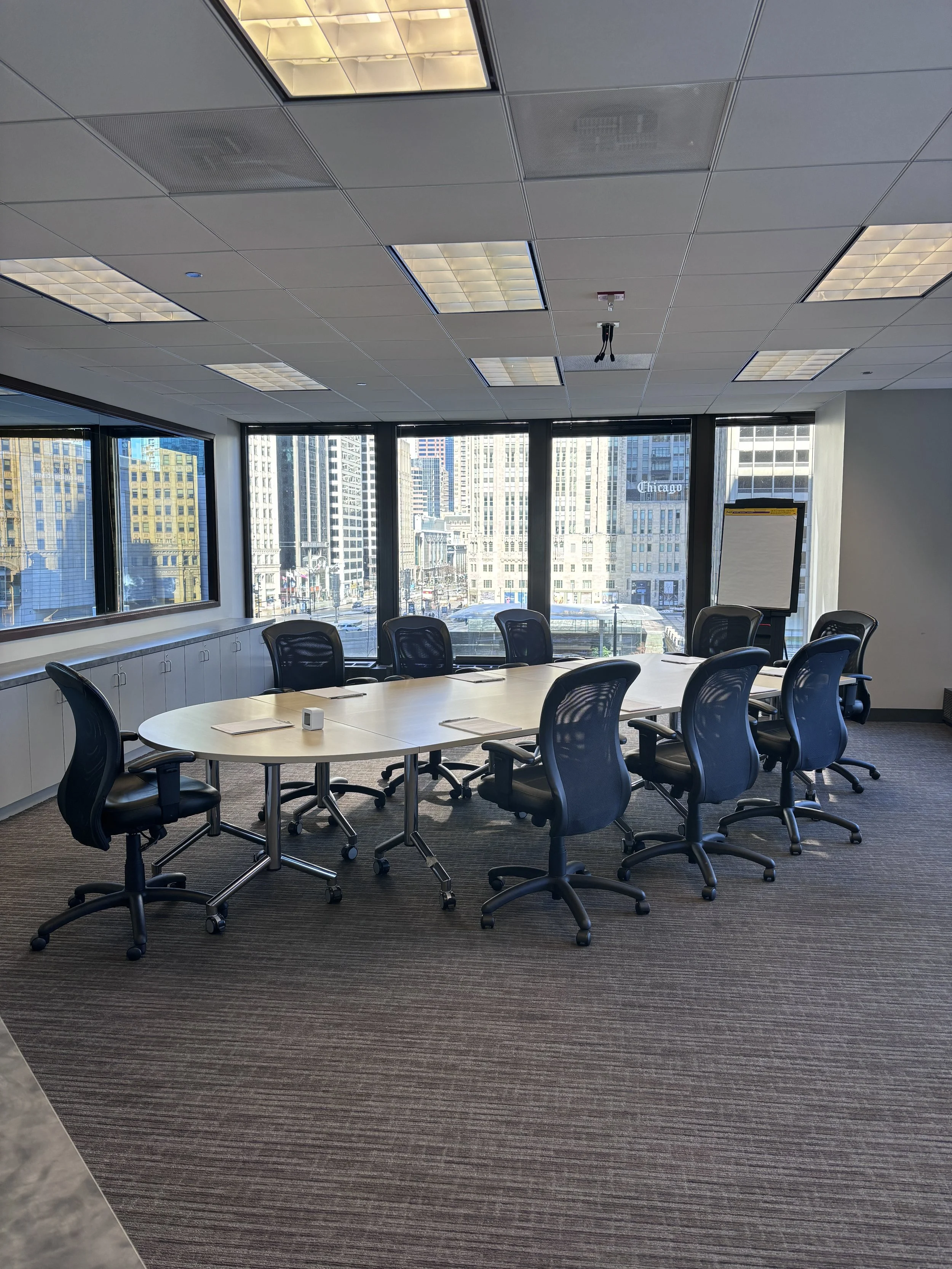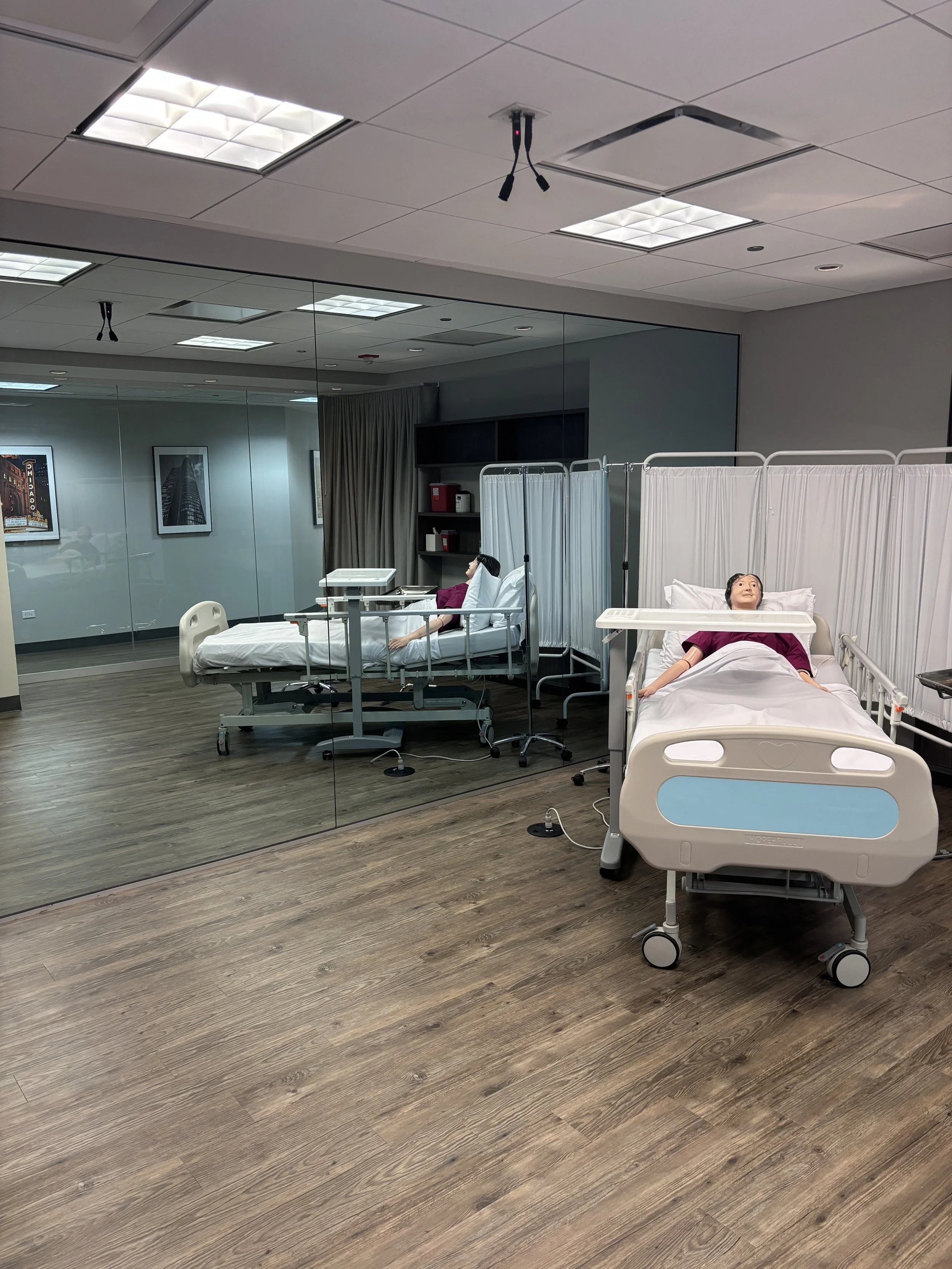Choosing the Right Focus Group Facility: Key Considerations for Research Teams
As a qualitative researcher who spent years zigzagging across the United States, I've experienced firsthand how critical facility selection is to research success. From rushing straight from airports to downtown facilities in major metros, to orchestrating pop-up sessions in rural hotel ballrooms for agricultural studies, each venue presents unique considerations. While traditional research facilities cluster in urban centers like Chicago – where options abound both downtown and in surrounding suburbs – we're seeing more flexible solutions emerge, including suburban locations and mobile setups that bring professional equipment to unconventional spaces.
(Bonus! I’ve featured two Fieldwork facilities over on Instagram for their NYC and Chicago spaces (they have 12 locations nationwide) and interviewed Kelsey Buttimer about their famous squishy critters!
Location & Accessibility
When evaluating facilities, location strategy extends beyond simple convenience. In major cities, consider rush hour timing and downtown parking costs that might stress participants. For suburban locations, ensure clear directions and ample free parking. When research demands reaching rural communities, consider transforming hotel conference rooms or community spaces into temporary facilities – many facility providers now offer "pop-up" support, bringing their audio-visual equipment and viewing solutions to any venue.
Physical Space Configuration
Room specifications matter - you'll need adequate space for participant interaction while maintaining intimacy for meaningful discussion. Consider:
Flexible seating arrangements
Proper sightlines between participants
Recording equipment placement
Soundproofing quality
Lighting controls for video recording
Types of shareable work surfaces: like whiteboards, pinboard walls, etc.
Space Configuration & Technology
Professional facilities typically offer purpose-built rooms with one-way mirrors and built-in recording systems. However, today's research often demands flexibility. Whether you're running traditional focus groups or need space for innovative methodologies, assess how easily rooms can adapt. Modern facilities increasingly offer hybrid capabilities, allowing seamless integration of virtual observers or remote participants. Even if your facility has more traditional designs (like a conference table and chairs), Kelsey Buttimer (President of Fieldwork-Chicago) shares that “any our spaces, even those set to look more traditional, are easily convertible. We're happy to work with our clients to accommodate specific setup requests.”
Facility Atmosphere
The environment influences participant comfort and openness. Professional yet welcoming spaces tend to elicit better responses. Pay attention to:
Reception area comfort
Temperature control
Refreshment options
Overall cleanliness
Professional appearance
Facility Experience & Support
Full-service facilities can manage everything from recruitment to refreshments, while venue-only options provide just the space. Consider your team's needs: Will you require help with participant check-in? Tech support for virtual observers? On-site catering? Some facilities even provide research staff support or moderation services. The level of support becomes especially crucial when working in unfamiliar markets or managing complex multi-city projects.
Types of services:
Full-service providers handle recruitment, screening, and participant management
Some offer professional moderators and research consultation
Basic venues provide space rental only
Many include technical support for virtual observation
Additional services like translation or transcription may be available
Observer Accommodations
Back room facilities are crucial for stakeholder observation and real-time collaboration. Backroom? Modern focus group rooms will have a one-way mirror, meaning when the lights are off, participants won’t be able to see the observers and note takers. It’s kind of like an interrogation room you might see on shows like Law & Order SVU but way more friendly and way less scary. That was probably a bad comparison, but hopefully you “see” what I mean!
One-way mirror quality
Audio system clarity
Workspace for note-taking
Reliable internet for remote viewing
Catering capabilities
Beyond Traditional Sessions
Creative research sometimes requires unconventional spaces. I've conducted sessions in restaurants after hours, community centers, and even agricultural settings. The key is ensuring the space serves both research objectives and participant comfort. Whether you're transforming a hotel ballroom or taking over a local venue, consider how to create an environment conducive to open dialogue while maintaining professional standards.
You don’t have to go to such lengths though - venues like Fieldwork have some unique rooms already designed, like their patient room in Chicago or their living room (with Pinterest-worthy decor!) in NYC.
Remember that facility selection impacts not just logistical ease but research quality. The right space helps participants feel comfortable sharing their experiences while giving your team the tools needed to capture and analyze those valuable insights. Feel free to reach out to Fieldwork if you have inquiries about their spaces!



